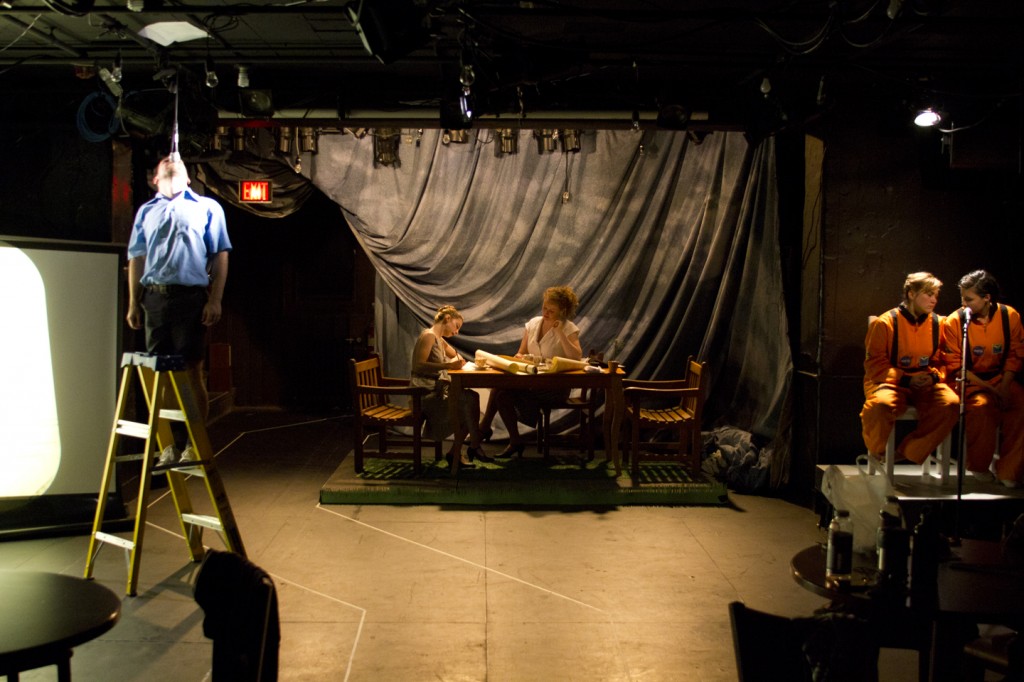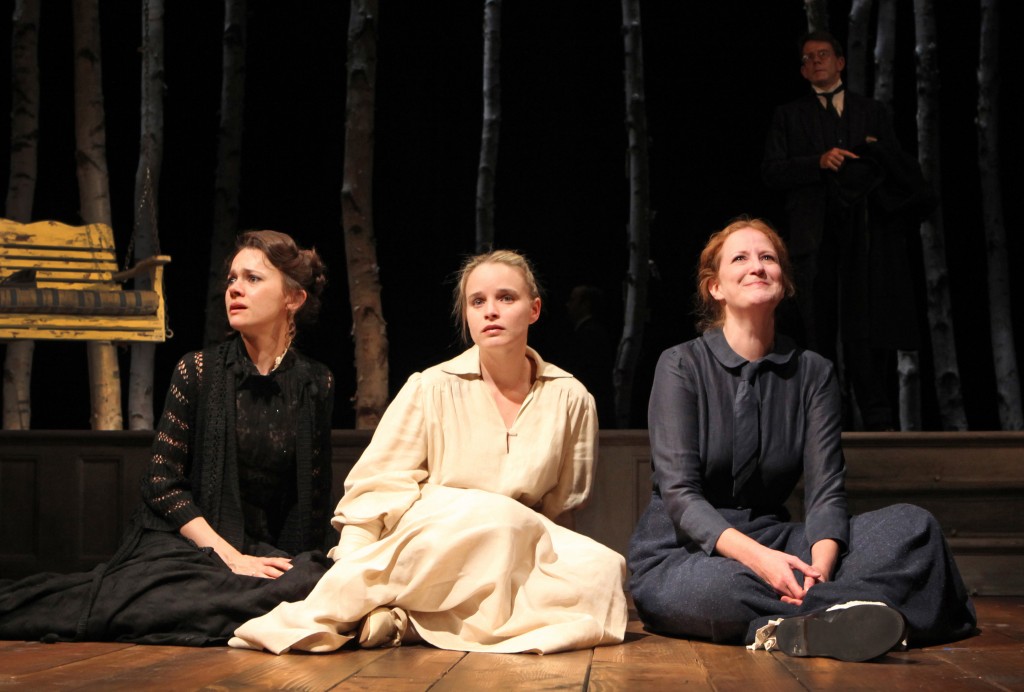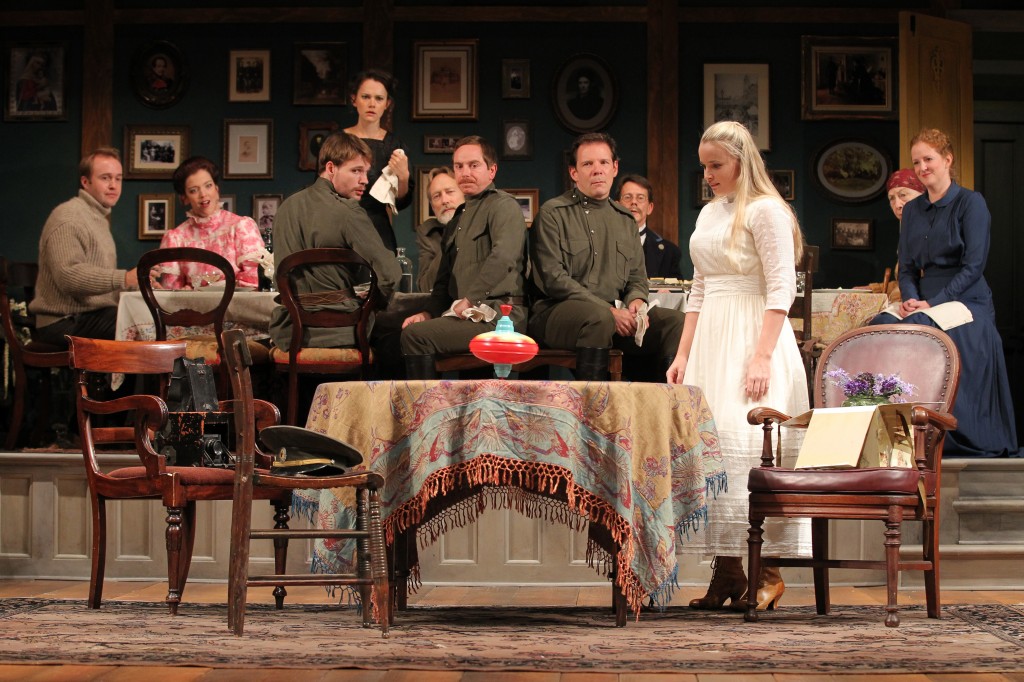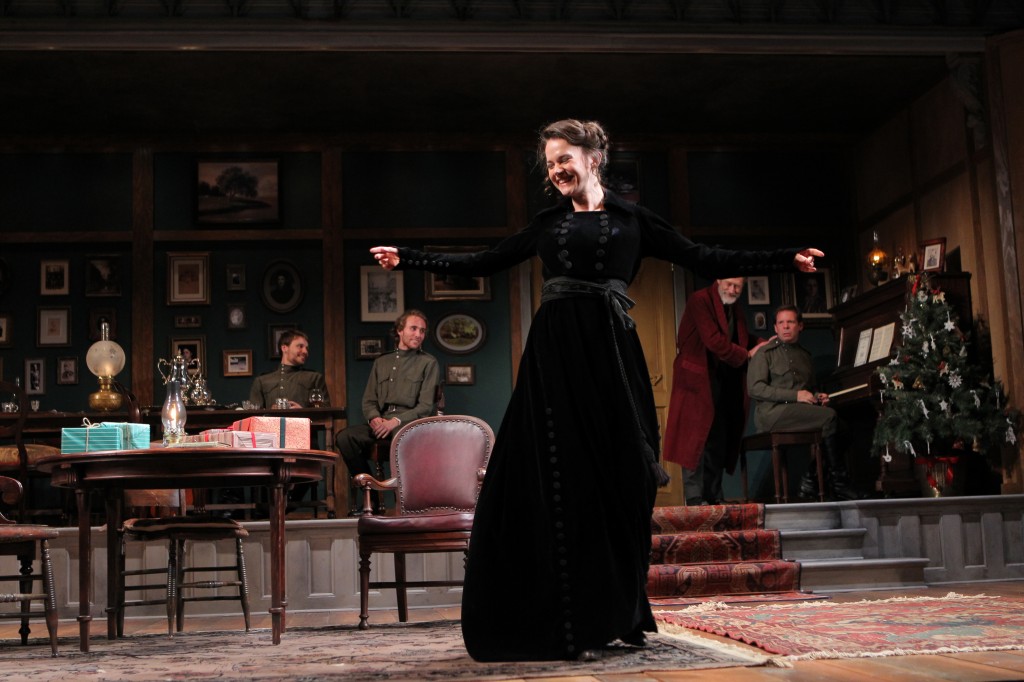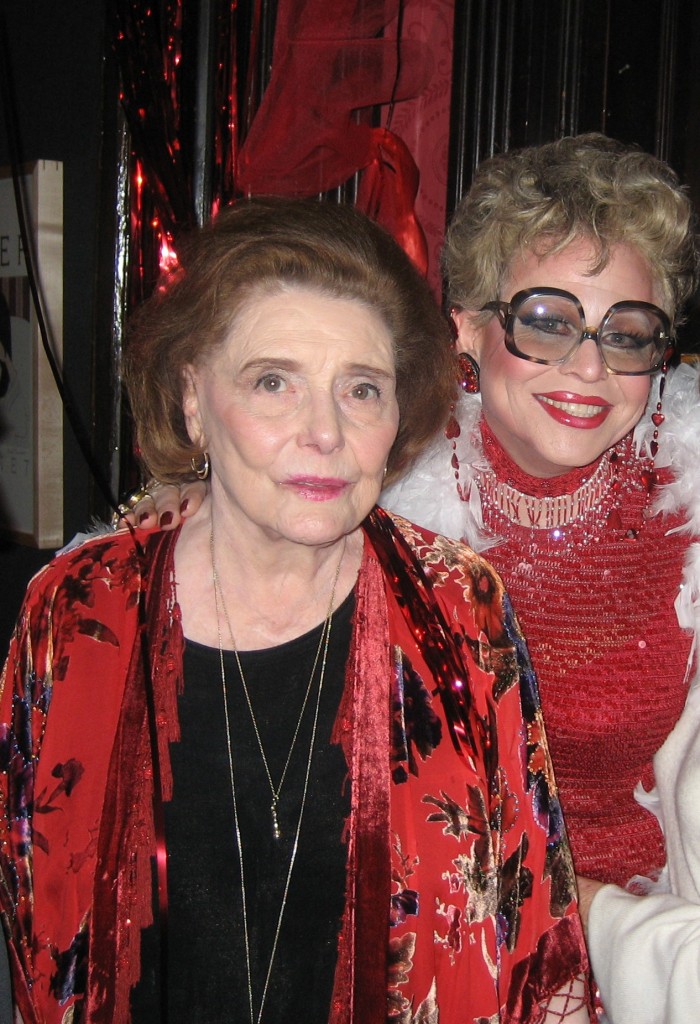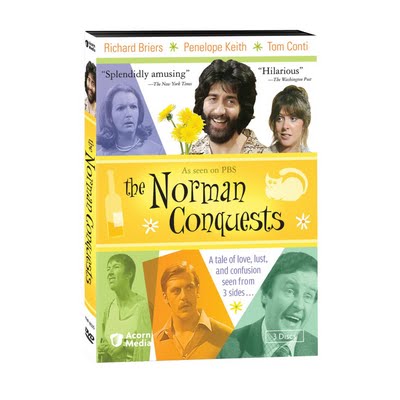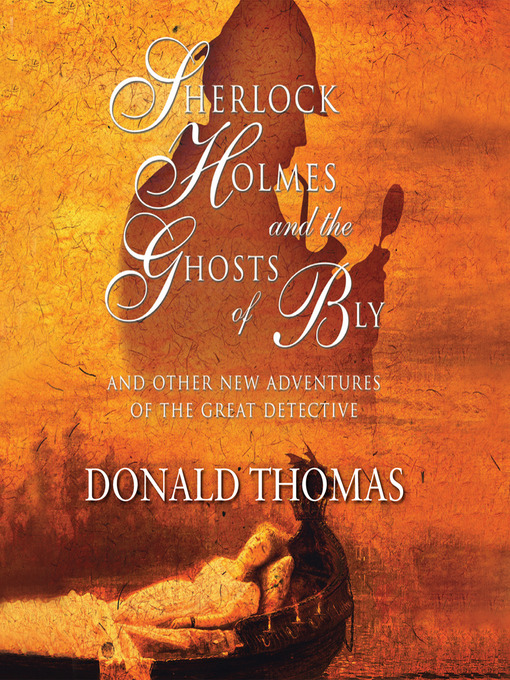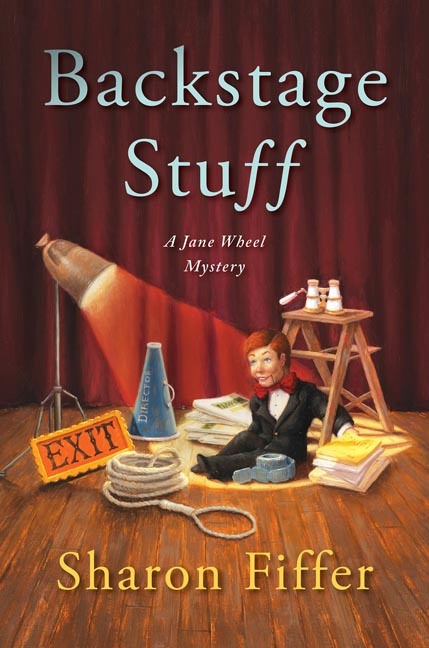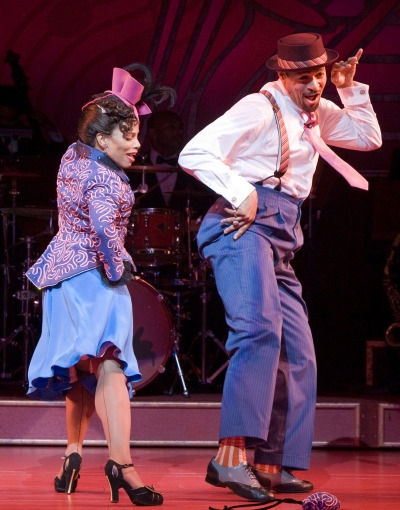hundredyearspacetrip. Closed; played Sept. 22-24 at the Yale Cabaret. Created by We Buy Gold and the acting ensemble. Performed by Kate Attwell, Ryan Davis, Brenda Meaney, Nina Segal and others. Lighting design by Yi Zhao. Sound design by Brandon Curtis.
Yale Cabaret productions are shortlived by design—six performances in three days, and that’s it. It’s my intention to review this season’s offerings on this site so that they’re still up to see for a performance or two when the review runs. With a bunch of other openings around town, that wasn’t possible last week. I didn’t get to hundredyearspacetrip until its final performance on Saturday night at 11 p.m.
…which turned out to be appropriate, since hundredyearspacetrip was a musing on missed opportunities, procrastination, delayed gratification, apathy and the wish to evade making concrete life choices.
These weren’t original themes to plumb—especially at the Yale Cabaret, where the students running the joint can be flummoxed with career options and encouragements, and confounded by conflicting desires.
There was something deep and special in how this five-person cast dealt visually and spatially with the feelings of inactivity, overwhelmth and complacence.
Two female astronauts sat at one side of the stage, zoning out. Two other young women, in old-fashioned dresses and Katherine Hepburn attitudes, pranced and flung envelopes around a kitchen table, center stage but pushed back a ways. In another corner, a postman climbed a stepladder to a hanging microphone into which he recited sheets of correspondence he tucked up behind pipes in the ceiling.
The show began with long bursts of silence as the performers settled into their repetitive duties. Then the play got increasingly textual, yet still with a presentational pomp, as the players balanced and splayed and reclined themselves. As they got uncomfortable, they expressed frustrations and hesitations and justifications and regrets.
The odd, angular staging evolved into more naturalistic expression, and hundredyearspacetrip ended with reading of pre-show surveys about what audience members decided they would remember from that day. Conceptually, this was not far different from the finale of The Naked Gun, which Austin, Texas experimentalists Rude Mechs brought to Yale last year. The exercise had the same comforting effect of a shared vibe between audience and performers, that we were all listening to each other.
Space exploration was a convenient metaphor for both the at-sea nature of the insecure characters and the presumed pettiness of some of their concerns. There were astrological factoids, night-sky projections and an underscoring of pop songs such as Elton John’s “Rocket Man” (though Harry Nilsson’s “Spaceman” or Bowie’s “Space Odyssey” might’ve fit the mood better).
Hundredyearspacetrip was long for a Cabaret endeavor, but in a lovely, lulling, numbing way, darkly lit and seldom jarring. It was unpredictable right up to the finish, and also gave the useful sense of unfinished business.
No easy answers here, but a convincing depiction of quiet mental anguish, with plenty of good humor and charm. I was smitten by the lackadaisical expression of one of the two astronauts, Kate Attwell. She and her fellow space traveler, Nina Segal, are part of the troupe We Buy Gold, which are credited with a “presented by” credit on this production. Attwell’s manner paced the whole show for me. She and Segal were fun to watch even when they were playing bored and adrift. That’s a neat trick, and one worth getting out of the house for.
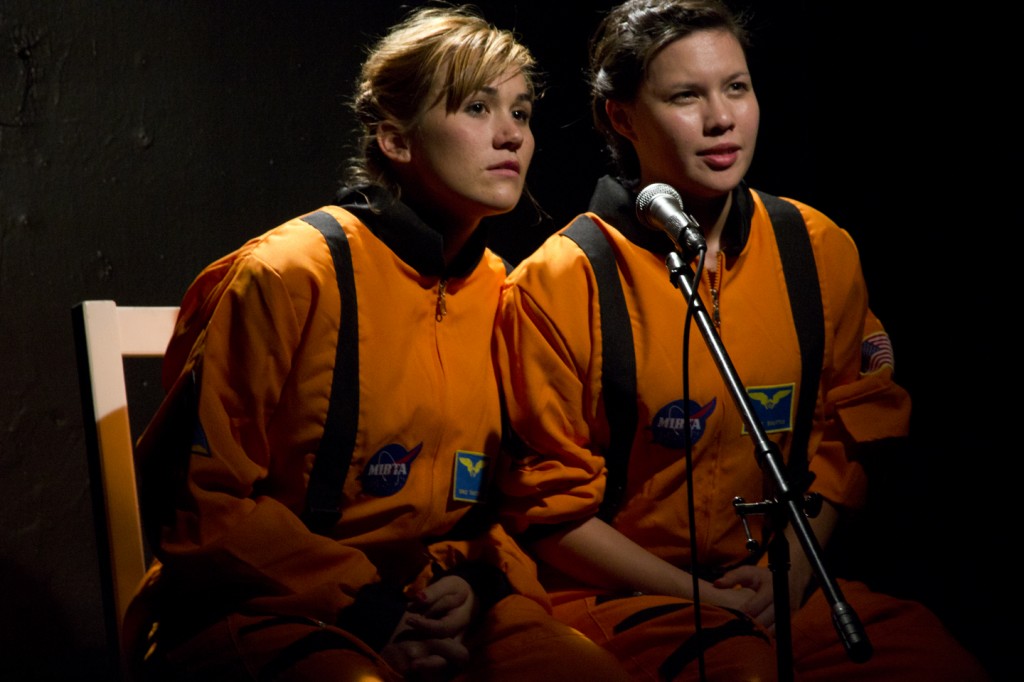
Kate Attwell (left) and Nina Segal of We Buy Gold space out in their hundredyearspaceship at Yale Cabaret. Photo by Paul Lieber.
No Yale Cabaret show this weekend. The remaining six shows of this semester have been finalized:
• Oct. 6-8: The previously announced adaptation of Bergman’s Persona, directed by Alexandru Mihail.
• Oct. 13-15: Chilean playwright Manuel Infante’s drama Rey Planta.
• Oct. 20-22: “Creation 2011,” which Cabaret co-Artistic Director Sunder Ganglani described to Saturday audience as “music and embarrassment.”
• Oct. 27-29: Howard Brenton’s Christie in Love, about 1940s British serial killer John Christie, directed by Katie McDerr.
• Nov. 3-5: Paul and Tim Fight a Bear.
• Nov. 10-12: Street Scenes
• Nov. 17-19: Wallace Shawn’s controversial (at least in 1970s London) and sexually charged A Thought in Three Parts.
Some of those titles need more explaining. I’m sitting down with Cabaret team later this week for just such an overview. Stay tuned. Meanwhile, you can arrange reservations, etc. here.

